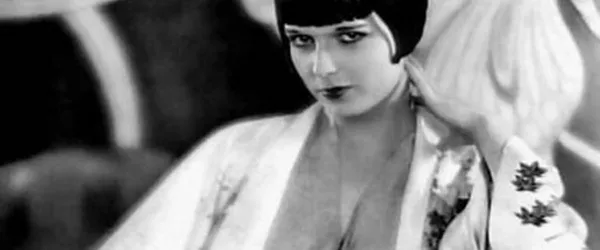Eye For Film >> Movies >> Pandora's Box (1929) Film Review
Pandora's Box
Reviewed by: Jennie Kermode

It's widely considered a classic now. It's the film that made Louise Brooks a star, but back at the time of its release it went under the radar. GW Pabst was an established, trusted director but yet to make his masterpieces (some consider this to be the first of them); the story was already available to German audiences in the form of a popular musical and play, so the film took a while to find a following. In the decades that would follow, after the demise of the Weimar Republic and the institution of the Hayes Code in Hollywood, its risqué subject matter and sizzling central performance guaranteed it ongoing attention; but it is its sheer quality that has seen it retain its power into the present day.
Brooks plays Lulu - later to be dubbed 'Pandora' by a judge - a kept woman whose fortunes take a turn for the worse when her lover announces his intention to marry a woman from a more respectable class. Looking for a new means of getting by, she falls in with a showman who promises to make her a star, but a subsequent plan to trick her former lover into marrying her subsequently goes awry. Forced into a series of increasingly desperate situations, she discovers that her wit, talent and beauty can ultimately only get her so far in a world where women's lives - and deaths - are ultimately controlled by men.

The celebrated actress - who would go on to make Diary Of A Lost Girl with Pabst later the same year - delivers a tour de force in the lead role. She has a screen presence that goes far beyond her beauty and the sense of naivety she brings to the role is equalled by her fierceness, the two merging in Lulu's assumption that she can command her own fate. From playfulness to desolation, she dominates every scene. Pabst gives her skin a luminosity that contrasts spectacularly with his inky black shadows, and the iconic costumes designed by Gottlieb Hesch continue to influence fashion to this day.
With not a great deal of story, Pandora's Box depends heavily on Pabst's visual style and on its supporting performers. Although some of the older men in Lulu's life are little more than cyphers, Francis Lederer delivers an affecting performance as her lover's son, who falls for her in turn, and Alice Roberts, though she was reportedly uncomfortable with the role, is a standout as the tuxedo-wearing lesbian who also adores her - a heroic character whose like would largely disappear from cinema until the last few years of the century. Although this is a silent film, they are given a good deal of intertitle dialogue. Even if you speak German, it's a good idea to seek out a subtitled print of the film because of the stylised script used for the intertitles and because even the restored versions are a little too blurry for the letters and notes we are presented with to be read comfortably.
Full of striking imagery which, once seen, will stay with you forever, this is a highly accomplished piece of work which brings together some of the greatest talents of the era. 1929 was a good year for cinema, but amongst its several treasures, Pandora's Box still stands out.
Reviewed on: 31 May 2018
















